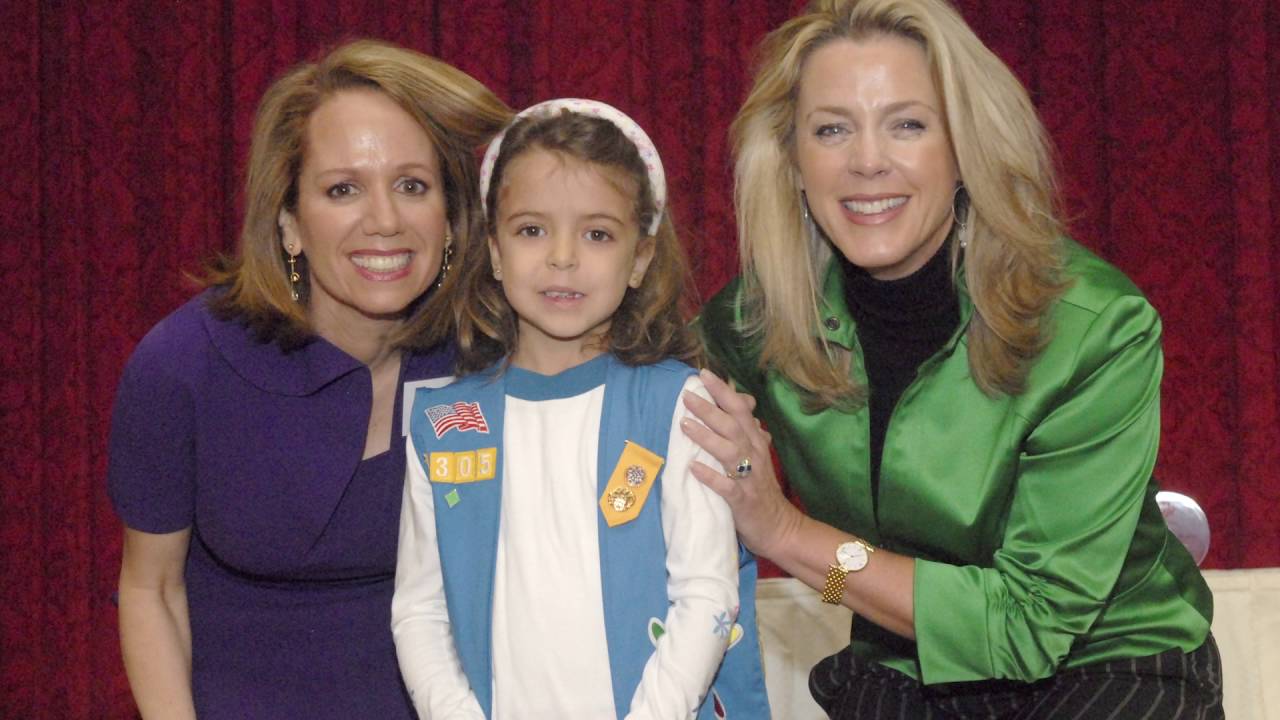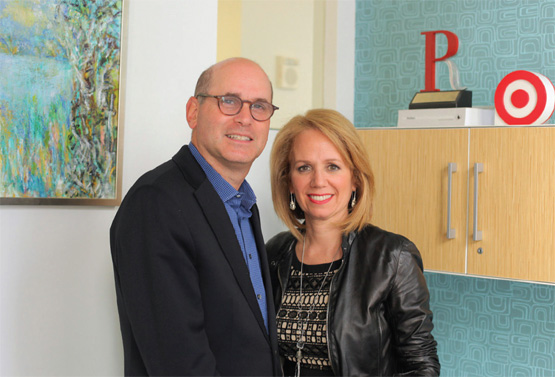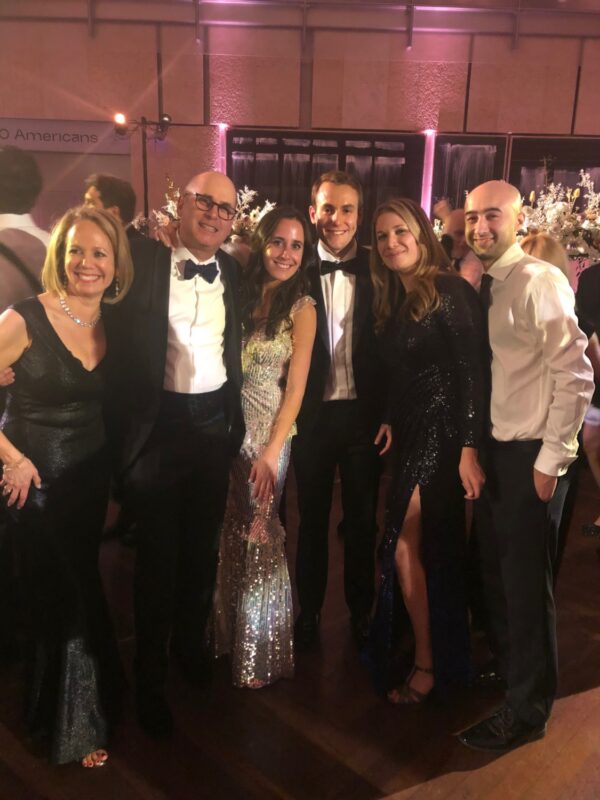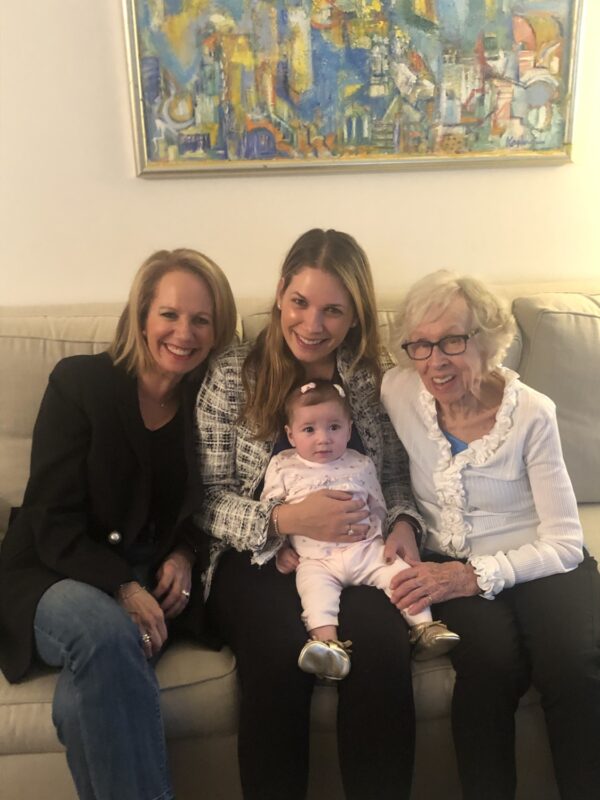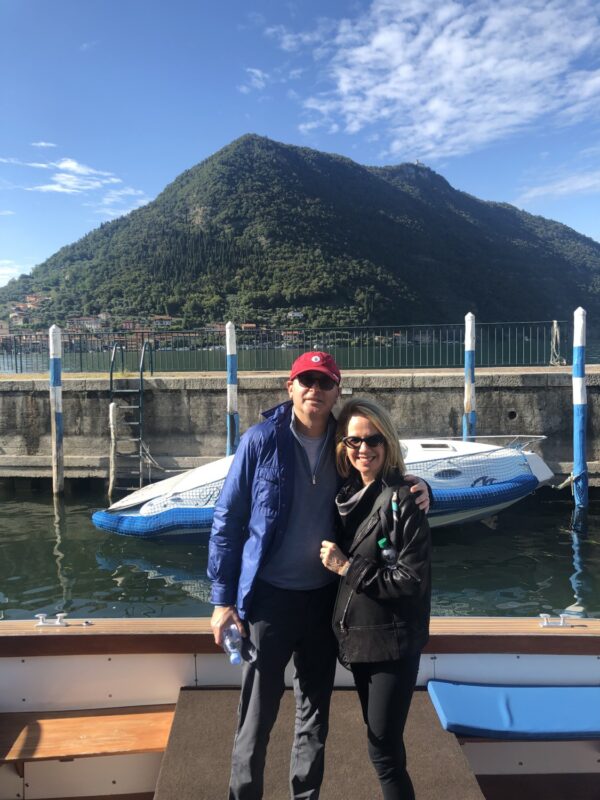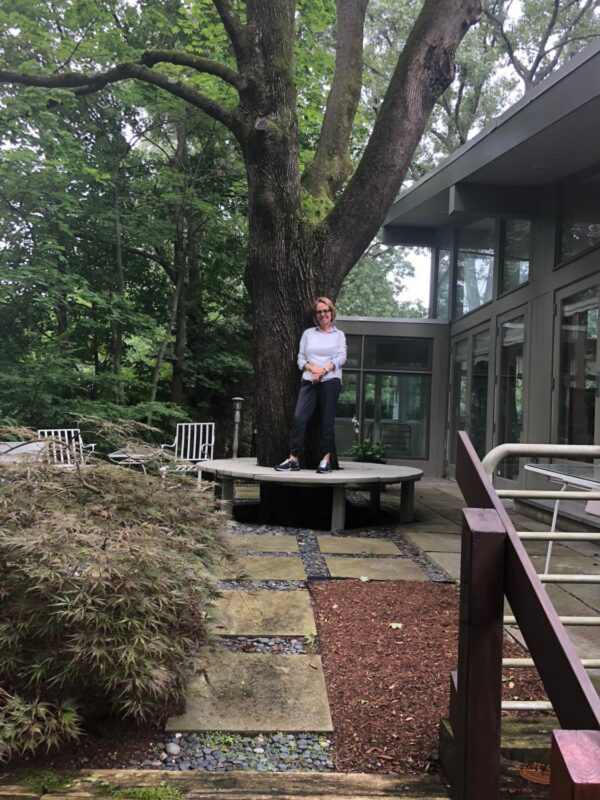Meet Liz Kaplow, a visionary entrepreneur who has reinvented the practice of public relations for today’s social/digital world, Founder & CEO of Kaplow Communications, she has earned many honors, including the coveted Matrix Award from New York Women in Communications and PRNews’ Top Women in PR Award, as well as a repeated spot-on New York Observer’s PR Power List.
.
Who is Liz Kaplow? Define yourself
I define myself by being a life-long learner. I have always had a natural curiosity and interest embracing new ideas. Someone once described me as “persistent with a soul.” I like being described that way as I believe that the combination of not giving up - coupled with an inherent sense of humanity - is a great thing to stand for.
“My recipe for success is to be resilient and learn to adapt. The business will always change. This year, more than ever, taught us that we need to put people first and show our humanity”
How were you as a kid?
I was a very musical kid. I spent a good deal of time playing different instruments. As I got older, I began writing songs and performing guitar in coffee houses. I was also very social and loved being with friends. Even at a young age, I had this fascination with business. Every night at dinner, I would ask my dad (who was a textile executive) questions about his day at the office and why he looked like he was in deep thought. He would tell me about what was going on at work, including the challenges he was dealing with and how he was solving those issues. I even visited him at the office often! I remember being ten years old and following him around. He would explain things to me without treating me like a kid and he would ask me my opinion on things. I credit my dad with helping me to find my voice very early on.
You are an honor graduate of Vassar College, and you have a graduate degree in communications at the Fashion Institute of Technology. Why did you choose those courses of study?
Going to Vassar and studying liberal arts was so formative for me because I am a believer that exploring literature and writing is (surprisingly) good training for a career in business. Language creates and elevates how people speak and relate to one other. Having teachers who were very passionate and encouraged discussion, analysis, and collaboration, is something I draw on every day as a leader.
Following college, I enrolled at Fashion Institute of Technology (FIT) as a graduate student in advertising, marketing, and communication. This was an excellent balance to my liberal arts degree. The professors at FIT were all from the industry and it was helpful to get hands-on perspective from executives and entrepreneurs. That was when I learned about Public Relations for the first time and never looked back.
How did you start in the PR industry?
I started with an internship at Burson-Marsteller. My boss was a top executive named Susan Kornfeld. She was tough and set the bar high. At the same time, she was very encouraging. I remember that she had me sit in her office and call journalists to get them to a high-profile event. She would then critique me! Even though this was intimidating, it taught me to put myself out there and to be open minded to constructive feedback as a way of improving. A skill set I still use! Following my internship, I went to work for the legendary Madeline de Vries, who was instrumental in my PR career. Although many years ago, I remember my interview with her clearly. There she was at 8AM in a crisp, mint green Carolina Herrera suit. The way she presented herself - so stylish, yet warm and interested in who I was - made an impression on me. I spent my entire career at DeVries, rising through the ranks.
In 1991 I opened the doors to Kaplow Communications. It happened almost by accident. Being married with two small children, I could not sustain agency life with the limited technology available at the time. I needed to be independent and set my own hours. I was working with Madeline at the time, and when I talked to her about starting my agency, she was completely supportive. I felt such passion in starting out on my own. There were many women at the time who encouraged and supported me. Today, almost 30 years later and with all the challenges, I remember my founding story and have tried to put people first.
“It’s about not getting pigeonholed into doing something the same way over and over, but instead being open-minded to completely new work that hasn’t been done before”
You are a respected advisor to business leaders around the globe, you have earned many honors, including the coveted Matrix Award from New York Women in Communications and PRNews’ Top Women in PR Award, as well as a repeated spot-on New York Observer’s PR Power List. What´s the recipe for your success?
My recipe for success is to be resilient and learn to adapt. The business will always change. This year, more than ever, taught us that we need to put people first and show our humanity. We must use our creativity to help our clients discover new opportunities. I also think it is important as a leader to show vulnerability, optimism, and empathy. These qualities have allowed me to redefine success while having a 360-degree life that infuses work and family.
You are a very busy woman and still, you have been a mentor to prominent young practitioners, you serve on the boards of Cosmetic Executive Women and the PRSA Foundation. What drives you?
My best friend since childhood and I always say, “I’m for You,” meaning I support you and you support me. That feeling goes out into the world and has a domino effect. I want each generation coming up to realize their potential and whatever I can do to help them find that I will commit to!
I also love mentoring inside our agency. I like being a player coach. I really feel good helping the teams be the best practitioners they can be. I compare it to being a director and being able to really shape and mold and coax. What you’re doing is like partnering with the actor to bring out their best work. There is a lot of gratification that comes from seeing teams do well. You give them a little guidance, point them in a direction toward their own ideas and then let them do it in their own way, in their own words.
“Always speak to people through their lens. I like to figure out how to talk to everyone by framing the conversation so that they’re excited about the message I’m delivering”
You are a visionary entrepreneur who has reinvented the practice of public relations for today’s social/digital world, what does your PR agency make unique?
Many years ago, the company was going through a challenging time with a lot of internal changes. I was thinking about my employees’ happiness and how we could move forward together in a positive way. I happened to be standing under this beautiful tree outside our family home. I looked up and it occurred to me how safe and protected from the world that tree made me feel. In that moment, the sense of how I could bring that to the company came to me. A philosophy I call TREE, which stands for trust, respect, energy, enthusiasm. To this day, Kaplow thrives using that philosophy. Human Resources uses it when they are interviewing potential employees. Managers use it during reviews when they rate performance. We also have a monthly meeting where our CFO hands out leaves with written praise from one colleague to another. The leaves are virtual these days, but it remains a wonderful and heartwarming connection for us all. Every month the Kaplow “virtual tree” is overflowing with leaves of accolades celebrating team contributions. The concept of TREE came about because of a detour from the regular business path. I think many great opportunities come from detours and not being afraid to bend with the times.
When it comes to what’s happening in the world right now during this pandemic, there are a lot of challenges everyone is feeling about doing business the way we used to. At Kaplow, we’ve evolved both in how we do business and the way we do business. From innovating virtual brand experiences to maintaining client connections even when we can’t be ‘in the room’ together, I am so proud of the pivots and unique strategies we bring to our clients each day.
Do you have any philosophy that guides your career decisions?
My philosophy is to find a career that you love. Especially today, I think it is important for people to feel an emotional connection to what they are doing. In our work, we are helping our clients create a connection to the people they are trying to reach. More than products and services, it is real value.
Our agency is doing a good job of that through virtual events that allow different ways to connect to people. We do the best we can to continue to tell great stories on behalf of our clients. I think of life at Kaplow as a long road and the best opportunities come from detours. What I like about those detours is that it shows the evolution of what we’re doing, what we’ve had, and where we continue to grow.
“Do not forget the importance of showing up. It’s easy to lose sight of people during the pandemic, but make sure to keep relationships strong and stay in touch”
You are a passionate advocate for diversity and inclusion in the workplace, even your agency earned the award of Top Places to Work in PR. Why is so important that companies foster a culture of diversity and inclusion?
Our job is to connect the brands we represent with the consumers they are trying to reach. And as the world changes, so do those consumers. Being aware of the diversity in ethnicity and gender means thinking about the world in a new way that helps us all communicate the message our clients need to convey. There are so many different types of media to work with from special interest bloggers and influencers to writers who have an audience that is far from the mainstream. It is so exciting to talk to and broaden our view on behalf of the client we’re supporting.
We have a taskforce in the agency whose mission is to make certain we educate ourselves around understanding cultural bias and unconscious bias. We spend time learning, bringing in outside speakers and asking questions to further our commitment to this mission. We also have a scholarship with NY Women in Communication that focuses on supporting the next generation of practitioners. Focusing on diversity, equality and inclusion is the way we can all move forward.
What does a normal workday look like for you?
My day-to-day work environment looks a lot different now during this pandemic compared to before. For me, being an in-the-room person who gets a lot of energy from other people, I’ve had to find new ways to feel that connection. I love to hear someone say, “You have good energy.” I think that comes in part from being in the room with someone and playing off their energy. These days, with everyone working from home, we find that energy in different ways. I walk outside to get fresh air and clear my head. I find a way between meetings to do a quick Pilates session for 20 minutes or call my best friends or talk to my daughters or mom. Before, these things would not have necessarily been something I would make time for. Not having to deal with the commute and the craziness of getting from one place to another has saved a lot of time.
“I have found the balance between raising kids and building a career to be a great challenge, one that I couldn’t have done without an incredibly engaged husband who was a complete 50/50 partner in our family”
What do you love most about your job? & what is the most difficult part?
What I love about this business is being given the opportunity to understand how best to serve our clients’ products and services by creating indelible stories. Pre-Kaplow, I was fortunate to be present for one of the best examples of how to communicate a brand’s vision. I was working with a handbag company and the CEO came into the office carrying a saddle. It was beautifully worn in and the reason he’d brought it was to illustrate how the patina of the saddle—the sheen and quality of it—was the kind of thing he wanted the handbag to reflect over time. How the product would become more magnificent as the patina developed and aged just like the saddle had. In that moment I thought there was no better way to illustrate what he wanted than by having that real live example. That is why I love the business. We get to help people make their products and services understandable to the world through the stories we tell about them. We’re helping clients bring their products to life, making the patina of the brand shine so that it lasts and takes on its own luster.
Times have changed since I first started the business. I grew up in a time when it was a different type of culture. There is a problem with just focusing on a result and not the people who are bringing about that result. That awareness made me reassess the company. If employees do not feel good emotionally, that’s an obstacle. It is not just about retention in a company, it is about how people feel working with each other and believing in the work they’re producing.
What is one strategy that has helped you to grow your business?
Taking the results from successful campaigns and applying them to different areas has been great. It’s about not getting pigeonholed into doing something the same way over and over, but instead being open-minded to completely new work that hasn’t been done before. We look at ways to bring all our previous experience to new clients by pulling from past work and understanding how the process can bend to apply to a new campaign. That’s been a great way to build the business. I’m also a believer in working to promote from within. Our President, for example, rose through the ranks at Kaplow, as have many other senior agency leaders. I feel tremendous loyalty in building from within. It’s as if that idea of the TREE branches out and offers everyone who feels safe underneath it a chance to use the branches to climb higher within the company.
As an entrepreneur, what is the one thing you do over and over and recommend everyone else does?
Understand and use empathetic communication. Always speak to people through their lens. I like to figure out how to talk to everyone by framing the conversation so that they’re excited about the message I’m delivering. Every day is fraught with challenges, but entrepreneurs need to be problem solvers and think using that framework. With every setback, it’s important to analyze why something didn’t go well. Every time we’ve had an obstacle or challenge, and we’ve had many, you look at what can be done better the next time around.
What are the do and don’ts in Public Relations in the digital era?
- Do make time to step away from the computer and take a break.
- Do think about remembering the importance of human interaction.
- Do recognize the changes in the media landscape and in business.
- Be succinct, to the point, and write in a human voice.
- Do articulate your point of view and remember to have presence and a voice.
- Do not be inflexible! Just because we did something one way before, use technology and efficiencies to problem solve future executions.
- Do not forget the importance of showing up. It’s easy to lose sight of people during the pandemic, but make sure to keep relationships strong and stay in touch.
Everybody has had dark moments in their lives, what have you done to get out of that phase?
Well, I love working with people. My grandfather was the original people person and that is the driving force behind what I love about this business. When the pandemic hit, that changed so much of what I’ve always been drawn to in the business, namely being in the room with people and feeling their enthusiasm. The difficult thing lately has been the sense of being slightly disjointed. I think everyone is feeling that – this sense of isolation. Given my long-term relationships, I started to reconnect with friends saying let’s do a quick Zoom or check in. And everyone got back to me saying “yes, let’s.” What I learned through that is how we are all in the middle of an emotional ocean, sinking or swimming, but we’re also all there for each other even if we can’t quite see where that is. One of the most vulnerable times for me was when the pandemic first started and I went in front of the agency and said, “I’m not okay and that’s okay.” When you are vulnerable and you’re able to express that, you become more human.
What do you like to do in your spare time?
I’ve become a cook! Right now, it’s an important time to experiment with new things which can be very fun. I also want to learn Italian. And I’ve been really focusing on walking, listening and noticing what’s going on in the natural world, and connecting with my friends and family.
Enlarge
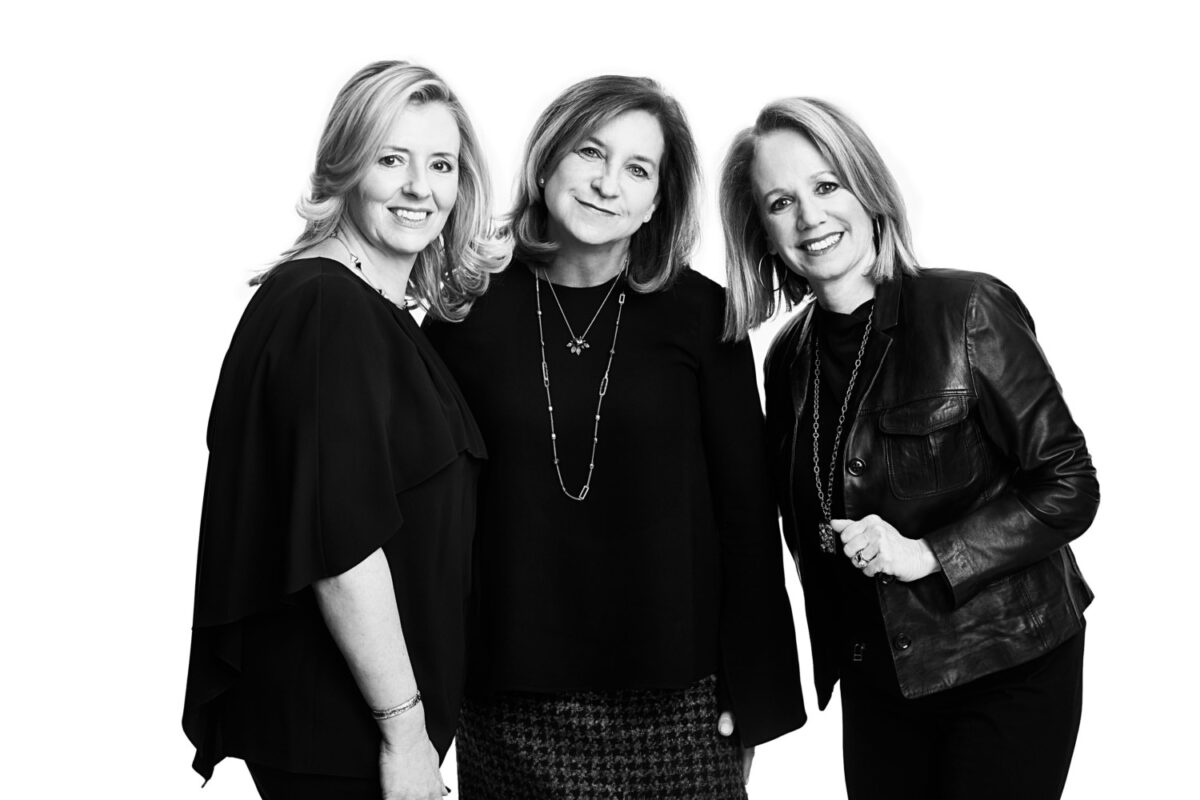
Leela Petrakis, Ginger De Leo and Liz Kaplow
Many authors say women can and must strive to have everything – a shining career, a blossoming family life and a perfectly balanced lifestyle all at once, others point out that– then women are placing unrealistic expectations on themselves if they believe they can have it all, you are married and have kids, so according to your experience, what do you think about these statements?
In the generation before me, women in business did not bring in their family life. I did not hear a lot about the “personal” side of people when I started the agency. That has changed. One of the best things’ women can do is tell their authentic stories - show how we live our lives and that we’re real people. I have found the balance between raising kids and building a career to be a great challenge, one that I could not have done without an incredibly engaged husband who was a complete 50/50 partner in our family.
In my early experience, I did not have a grand plan about having a big career with family. It was something that evolved. Having it all can be an intimidating notion for anyone, especially young women who might feel that everything must be done all at once: a perfect family, a perfect career. But that isn’t how it happens. It’s always one thing at a time. How I’ve done it is by staying very present and keeping my eyes open, noticing opportunities and being very aware of the signals that can pull you in a new direction. I also think post-Covid, the workplace will look and feel different. It’s already happening.
What are your plans for the future?
Just as I was at the start of my business in being an accidental entrepreneur, I’m feeling that may be true for the future as well. Rather than knowing exactly what I’m going to be doing, I’m staying open minded to the possibilities of where I can continue to keep the business relevant. One thing I see in the future is reaching out even more to the next generation so I can use my career, the journey that I’ve had, to encourage the next generation to find a way to work in something they love. To enjoy and love what you’re doing is crucial to happiness.
There is still the glass ceiling for women in the world: Fewer opportunities, jobs underpaid just for that fact of being a woman, etc. Have you experimented with the glass ceiling? If yes, what are the biggest challenges you have faced and how have you overcome them?
As an entrepreneur, I personally believe I’ve been able to circumvent the glass ceiling. Starting my own agency gave me a sense of control over the direction of my career. However, I do remember when I was just setting up and nobody would give me a line of credit. I went from bank to bank and finally there was this one banker who listened to my story. I told him how much I loved PR and how I wanted to create an agency that would focus on brand storytelling. I gave him the whole dream. The agency was off to a bit of a start, but we needed a financial push. He stepped up and gave the company what we needed and he’s still our banker today. When I received the NYWICI Matrix Award, which is the highest honor in communications, he was the proudest of anyone. He’s also really helped us during this Covid time.
For women in general, there is so much energy now about being able to have childcare, achieve pay equity, find openness and equality, inclusion, and diversity. All the signs are pointing to a hopeful outcome that the next generation will not be experiencing the glass ceiling as past generations of women in the workplace have.
What tips, can you give to young girls who want to become an entrepreneur like you?
Look for areas of growth based on what people need or the solutions you see that are needed. Use your voice. Always navigate change and continually adapt, while still believing in your idea. Make sure you are positioned so people can see you and communicate with you. Be confident in showing your personality and passion but be willing to be flexible. Also be persistent. Persistence is one of the most important things to have in all parts of life. Persistence with a good idea is a winning formula. And relationships! Remember the people you surround yourself with. From your first employees to your advisors to those who fund you -- and finally to the customers you are serving: each interaction is important and should be nurtured. Out of these times will rise new opportunities, new models, new ways of thinking and we all need to be open to those changes. Open mindedness, resiliency, and relevancy are the most important things we need to stay on our feet during these times.
Enlarge
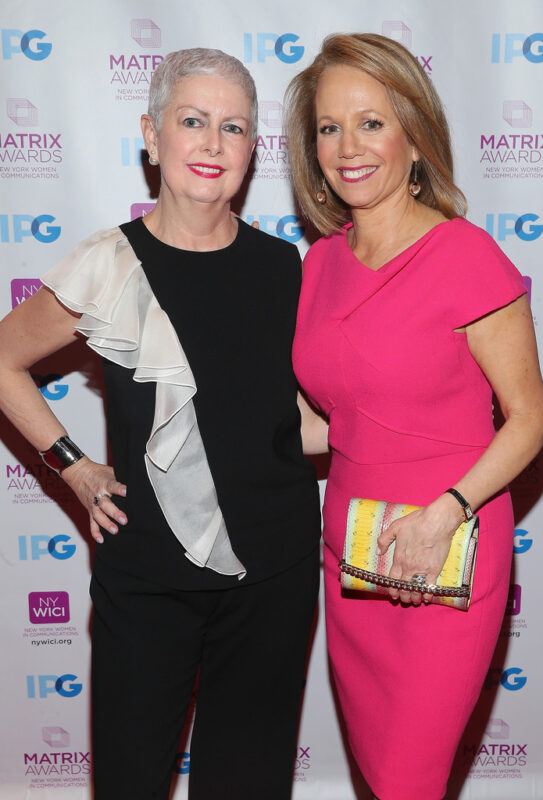
I think in your position, many people may have the wrong idea of who you are, and what do you (professionally), with this idea in mind, what is being Liz and what´s not?
Historically many CEOs have tended to be leaders who see themselves as somewhat isolated, providing a point of view from the top down. But I love the nitty-gritty work and being with people. I am a family person. I look at Kaplow as a family. I am lucky because my husband is in the business and long before it was common, we had a 360-degree life. He would take over with the kids and help while I spent time on the business. And we continually switched places. You find that same situation happening more now, but back then you didn’t see it as much. Today, during the pandemic, leveling of the playing field is so important and I believe this has helped our team to see us as more human. It’s important for the team around you to see you as real - succeeding, struggling, persevering - all of it.
Who is the woman you admire the most and why?
My mother Gloria Kaplow is turning 94 in April. She has been a role model for me in business and as a mom, and I believe that during these challenging days, her approach to life can be an inspiration and universal guidepost to women of every age:
- Good Energy Spreads: When you are feeling low energy in personal life or struggles in your career, you can shift the situation by interacting with enthusiasm, interest, empathy, and humor. It goes both ways: seek out people who bring out the best in you.
- Tackle difficult times by following your “inner creativity”. Through the pandemic, as our lives have become smaller, creative endeavors will expand your mind and help you to see and embrace new opportunities.
- Leave out the Guilt. My mother always encouraged me to I have a career. My mother never made me feel guilty for what I could not do and would encourage me to keep going.
- Eat well and keep Moving: My mother was interested in healthy eating, she still wants to eat fresh foods and believes in the strong connection between what you eat, how much you exercise and how you feel.
- Stories keep Ideas Alive: My mom helped me see Public Relations through the lens of storytelling. Often, I come up with anecdotes and metaphors to pass along lessons and ideas to the Kaplow team. Stories take us through magical journeys. They enrich and delight us, making our conversations more memorable.
- Replace jealousy with gratitude: My mom taught me that jealousy is a big waste of time. It is important to remember that you do not know the challenges others may face, and to be grateful for who you are what you have.

